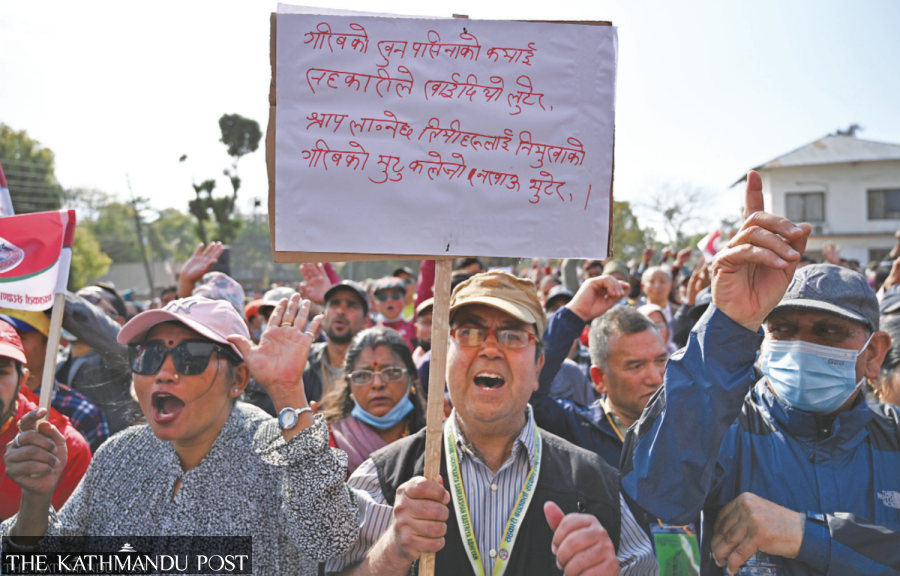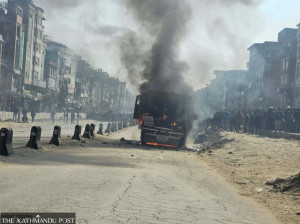Bagmati Province
Bagmati Province has highest number of cooperatives but no dedicated monitoring body
Most of the cooperatives that face police complaints are from the three districts of Kathmandu Valley, official says.
Post Report
According to the Department of Cooperatives, Nepal has around 34,000 cooperatives, of which Bagmati Province has the most at around 3,200.
The province, however, does not have a cooperative registrar’s office, an autonomous body tasked with monitoring the activities of cooperatives.
At the federal level, the Cooperative Registrar’s Office monitors the operations of cooperatives. Since Bagmati lacks one, the head of the office under the ministry that also oversees cooperatives in the province is having to play the role of the registrar.
“If there was such a body in Bagmati, it would have settled at least some issues,” an official working in the sector said, requesting anonymity.
Of the total 2,300 cooperatives in Kathmandu Valley, 1,700 are in Kathmandu district. Given so many cooperatives are concentrated in the Valley, it’s likely that the number of victims is also high there, the official said. This makes the lack of a dedicated cooperative registrar’s office in the province all the more glaring.
The Ministry of Cooperatives and Poverty Alleviation currently has a division that maintains the provincial cooperatives’ register.
“Due to the absence of the registrar's office in Kathmandu, cooperatives victims of Kathmandu are forced to go to Hetauda, the provincial capital, to file a petition to get their savings back from the crisis-ridden cooperatives,” an officer at the provincial ministry said. “The lengthy complaint process has caused additional suffering for victims.”
Although the federal government allocated a budget last year for the purpose of opening the cooperative registrar’s office in Kathmandu, it is yet to be materialised.
Additionally, the depositors in Bagmati have filed complaints against more than 67 cooperatives operating in the province that have failed to return the savings. Based on the complaints, the Provincial Cooperative Registrar's Office has sent letters to the specific district police office to take action against the cooperative operators.
According to Kumar Tamang, acting registrar at the Provincial Cooperatives Registrar’s Office, a complaint has been filed to the relevant district police offices to act against the operators of cooperatives that do not return the deposits nor respond to letters to resolve the problem.
Most of the cooperatives which face police complaints are from the three districts of Kathmandu Valley, Tamang said.
The Bagmati provincial government recently declared three more cooperatives as crisis-ridden. With this, the number of cooperatives to be declared problematic in Bagmati has reached five.
According to Tamang, Sumeru Saving and Credit Cooperative, Pulchowk, Lalitpur; Laligurans Savings and Credit Cooperative, Kathmandu; and National Namobuddha Savings and Credit Cooperative, Kathmandu were recently declared problematic.
“Although the number of problematic cooperatives under the watch of the federal government is higher, five cooperatives under the jurisdiction of the Bagmati provincial government have been listed as crisis-ridden,” Tamang added.
These cooperatives were declared problematic for reasons including not fulfilling financial obligations, not returning deposits when requested, and not working according to the action plan despite having one to return the savings.
Among those declared problematic, the Laligurans Savings and Credit Cooperative and the National Namobuddha Savings and Credit Cooperative have been sealed.
Prior to this, the provincial government had declared Kathmandu’s Civil Savings and Credit Cooperative and the Kirtipur-based Darshan Savings and Credit Cooperative as problematic.
Victims have filed complaints against more than 137 cooperatives across the province demanding their deposits back, and investigations are underway, Tamang said.




 14.12°C Kathmandu
14.12°C Kathmandu













